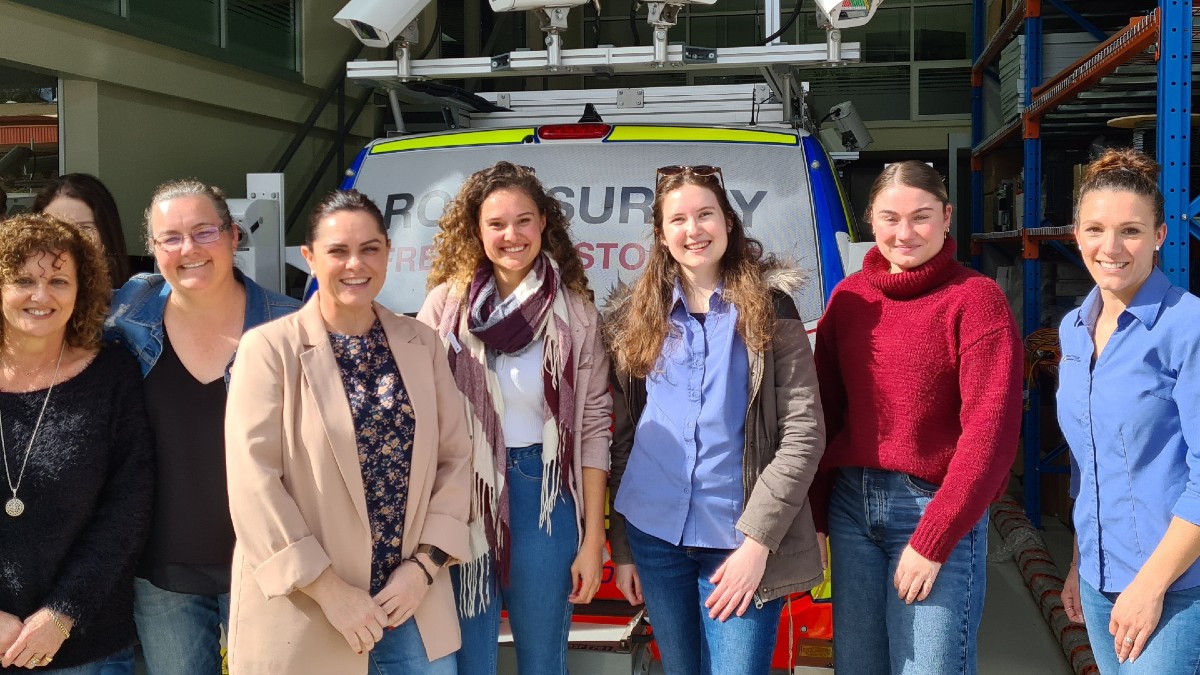“Happy people are productive … it benefits the business for people to be well, mentally and physically.”
“If businesses took a step back and looked at the time and money that is lost on people off for mental health reasons – that may or may not be relative to the workplace – there would be a natural vested interest from the business to protect their employee, benefiting not only the employee but the business as well.” says Jessica McCadden, Safety & Administration Coordinator at Infrastructure Management Group.
“Happy people sell. Happy people are productive … it benefits the business for people to be well, mentally and physically.”
It’s clear that Jessica is passionate about mental health and wellbeing in the workplace, leading her to sign up for free Workplace Mental Health Coaching, to benefit the small business she works for.
“Mental health and wellbeing is something that’s close to my heart,” she acknowledges.
For Jessica, the NSW Government’s free workplace mental health coaching program, delivered by Transitioning Well, helped channel that passion into creating clear outcomes and a focused direction for the organisation.
“I wanted to do something, but didn’t fully know how to execute it.”
As a small organisation, Jessica acknowledges that they don’t have access to the extensive resources available to larger companies.
“Having the coaching has helped. I’m not on my own. I have a team of people to support me to implement stuff for the business.”
Although she is still early in her journey, Jessica acknowledges that coaching has helped her move the dial on psychosocial risk management from a ‘tick the box’ exercise to fostering genuine, real-time awareness.
To ensure her focus on mental health and wellbeing remains on track, Jessica is forming a Corporate and Social Responsibility (CSR) team, to help define their mental health policy. The team will meet quarterly to continue to promote inclusivity, advance mental health initiatives, and minimise psychosocial risks within the organisation.
Coach Katie Botha states that the CSR team is a great way to “encourage consultation and drive relevant wellbeing initiatives across the business”.
“As a starting point, we’re sending out surveys to gauge awareness on mental health, diversity and many different things,” Jessica says. “This will help us get a baseline and move from there.”
In addition, coach Katie adds that Jessica has implemented an anonymous feedback register for staff, which includes questions on community, social responsibility and workplace factors that affect mental health and wellbeing. She is also ensuring regular 1:1 conversations are occurring between employees and leaders to drive continual improvement in the mental health and wellbeing space and reduce psychosocial risks in the workplace.
For Jessica, coaching has helped keep her accountable for achieving her goals at Infrastructure Management Group. “Reporting back to Katie on our initiatives since the last time we’ve spoken keeps me accountable to push it to the end, as opposed to starting work, doing training, and then it fizzing out.”
Jessica also cites the benefits of doing mental health training alongside support from a coach.
“The conversations that we’ve had … likely wouldn’t have gone on without training,” she states.
“Even just the engagement from the management team … I didn’t really know what I was going to be up against,” Jessica acknowledges. However, she says, the engagement from managers after the training was “quite impressive”.
Three words from Jessica sum up her experience to date. “Awareness is huge.”
Learn more about Workplace Mental Health Coaching here.
3 key takeaways for small business
- It costs nothing to try. “The fact that [coaching] is free is incredible. So, grab it with both hands. There’s absolutely no harm that can come from doing it.”
- Coaching can help you fill any gaps. “It helps me confirm I’m on the right path,” Jessica says, acknowledging that coaching has supported her with resources and policy development. “You don’t have to do all of the challenging brain work,” she says. “You’re given the resources. You’ve got a base to work with.”
- It can be the start of a conversation. “There’s more conversation [about mental health and wellbeing] between our managers and larger team,” Jessica says. “There’s more acceptance. It’s not a taboo subject … if people are struggling, they can talk to somebody, and then we can point them in the right direction.”



